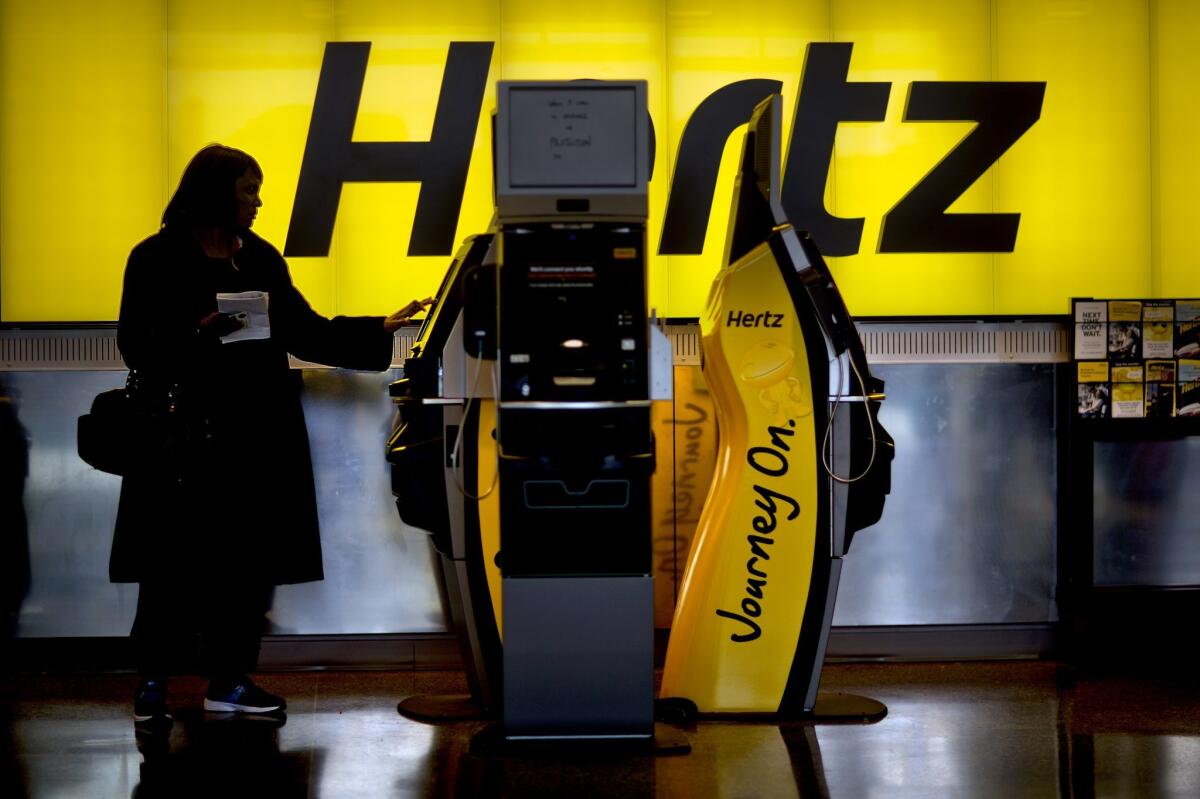How to cover all the bases with car rental insurance

Renting a car is easy, but what to do about rental insurance?
- Share via
Holiday travel time is upon us, and we will be renting yet another car. Can you possibly help me out with rental-car insurance advice? My wife isn’t thrilled when we spend the money for full coverage; she thinks it’s a waste of money. My insurance agent says to get it even with our umbrella coverage because of something called out-of-service charges if there is damage to our rental car. It’s so expensive. Is it worth it? Does my credit card really cover an accident? I’m feeling woozy. Please help.
Mike Imfeld
Burbank
Answer: Take a deep breath. Then listen to your wife, which is a good idea in almost every circumstance.
If that sounds like a spousal conspiracy talking, then listen to Sean McQuay, a credit-card analyst with NerdWallet.com, an online financial advisor.
When I asked him what he would say when a rental-car agent asks him whether he’d like insurance for a U.S. rental, he replied, “I would absolutely say no.”
For that “no” to be absolute, at least three things must be considered:
—Do you have primary rental-car insurance? (He does.)
—Do you have a credit card that offers secondary rental-car insurance benefits? (He does.)
—Do you understand the benefits of the card you are using to rent the car, which vary depending on the card? (He does.)
I now pronounce him well insured for a rental car in the U.S.
And you can be too without buying the proffered insurance, unless you do not want to file a claim with your primary auto insurer and/or don’t want the hassle of filing a claim with a secondary insurer and finding out what your coverage is.
The last point — finding out what your coverage includes — is key to saving money by not buying redundant coverage.
American Express, Visa, MasterCard and Discover all offer cards that have rental-car coverage, but coverage varies by issuer and by the type of card. (Some cards even offer primary coverage, which means you don’t have to file a claim with your insurance company.)
One example of an important dissimilarity: Amex, Visa and MasterCard generally cover loss of use — that is, the car-rental company dings you for the length of time the damaged car is out of service for which you will be billed — but Discover does not, both McQuay and a Discover agent told me.
Also, be aware of what kind of card you have. If your MasterCard says “World Elite” or “Platinum,” or your Visa says “Signature,” you probably do have some sort of rental-car coverage. All American Express cards have some sort of rental-car coverage.
The length of that coverage can vary no matter which issuer you’re using. For instance, in some cases, if you have the car more than15 days, you’re no longer covered. And some cards won’t cover certain kinds of vehicles; for example, they might cover a passenger van but not a cargo van.
So pick up the phone and call your credit-card company. Ask what your card can do for you in terms of rental-car coverage. Make sure you ask about loss of use, length of coverage, kind of vehicle, primary and secondary insurance and how to file a claim.
Once you have all those answers — or maybe before — you may want to consider public transportation, cabs or Uber, Lyft or another ride-sharing service. On a recent quick trip to Kansas City, Mo., which has high taxes on rental cars, we decided to use cabs and ride-sharing for our excursions. (We had rides to and from the airport, which is about 22 miles from downtown.)
It was grand not worrying about getting lost or having a second drink with dinner and, in the end, we spent less on alternative transportation than we would have for a rental car. Which didn’t leave me feeling a bit woozy.
Have a travel dilemma? Write to [email protected]. We regret we cannot answer every inquiry.
Sign up for The Wild
We’ll help you find the best places to hike, bike and run, as well as the perfect silent spots for meditation and yoga.
You may occasionally receive promotional content from the Los Angeles Times.




